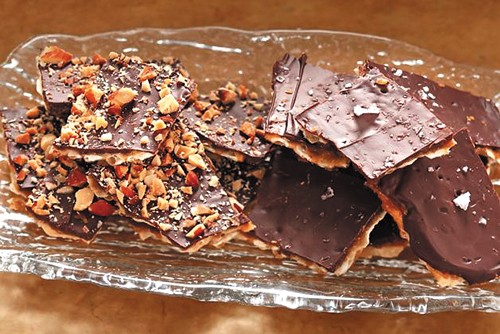

For those of us trying to reduce the amount of carbohydrates (“carbs”) we’re consuming with the intention of losing some weight, without doubt, Pesach is one of the most difficult eight days of the year. Take the sedarim, for instance, epitomized by the simple equation “matzo + wine + large meal + late at night = perfect storm for weight gain.”
When it comes to maintaining a healthy diet-and-exercise regimen, Pesach and Succot are always a tough time, with at least five days of big meals squeezed into an eight-day period. Pesach is particularly challenging, though, with the added bonus of just about every course in every meal likely filled with matzo, matzo meal, and/or potatoes—total carb overload.
The festival celebrating our redemption and freedom is such a special time with so many opportunities to draw closer to Hashem. Is there a way to perform the mitzvot with both a joyful heart and a guilt-free conscience?
Of course there is. Here are seven ideas to weather the carbohydrate storm that is Pesach:
Substitute matzo and matzo meal made with processed white flour with their whole wheat equivalents. As I discussed last week, whole grain products don’t spike your insulin levels as much as processed grains do, and are less likely to be converted to fat; they’ll also keep you sated longer. You can even get handmade whole wheat shmura matzo which, believe it or not, tastes pretty good.
Substitute heavy side dishes with lighter salads. Make sure there’s at least one green salad on the table at every meal. Feel free to load it up with tasty accoutrements such as chopped almonds or walnuts, craisins, citrus fruit slices, strawberries, mango, avocado or different colored peppers. If you fill up on salad, you’re less likely to exceed your daily caloric requirement over the course of the day.
Substitute heavy starchy foods, such as potatoes and matzo, with lower Glycemic Index foods. Try grilled vegetables such as peppers, onions, winter squashes and zucchini. If the weather permits, use the barbeque to grill the vegetables; the taste is divine.
Substitute cake and cookies with fruit for dessert. While it’s true that Pesach cake has come a long way in recent years, it hasn’t come so far as to be calorie free. In as many meals as possible, try and minimize the starchy desserts.
Choose protein over carbs. If points 1 through 4 are still not doing it for you, and you’re still hungry, better to choose protein over carbs. Protein contains the same number of calories per gram as carbohydrates, but you’re less likely to go overboard with meat and chicken than you might be with starchy side dishes and desserts loaded with fat and sugar.
Make your Shulchan Orech less “orech.” The Pesach seder calls for a meal late at night. Typically, this meal is pretty large (even though every year we always tell ourselves “it’ll be a small affair this year”) and by the time it rolls around—after spending what is sometimes hours reciting from the haggadah—everyone is always ravenous and ends up eating more than they probably should. That being said, I suggest pacing yourself during the meal. Eat slowly and purposefully. Minimize your portion sizes too, and remember that just as the Jews left Mitzrayim, so should you be able to leave the yom tov table… without having to push the chair too far back or loosen your belt.
Get the blood pumping. Avoiding leaven over the eight-day period doesn’t mean avoiding exercise too. Try and get as much exercise as possible over the chag. A 20–30 minute walk after heavy yom tov meals does wonders for digestion, and can burn off at least some of those carbs. During chol hamoed, exercises that include calisthenics, cardio and resistance training and stretching are all recommended.
I think we can all agree that Pesach is “challenging.” It’s challenging for parents who clean, for kids who like their cereal, and for health nuts who like their routine. I was once told that Hashem gave us Pesach as a gift to the people who love to complain. Yes, we can focus on these challenges; but, instead, we must view them as opportunities—opportunities to get closer to our families, closer to Hashem, and closer to the reason we were freed in the first place.
Chemmie Sokolic is an ACSM-certified Personal Trainer, and owner of Frum & Fit LLC. Chemmie can be reached at chemmie.sokolic@frumandfit.com. Visit www.FrumandFit.com or www.Facebook.com/FrumandFit for more information.
By Chemmie Sokolic









